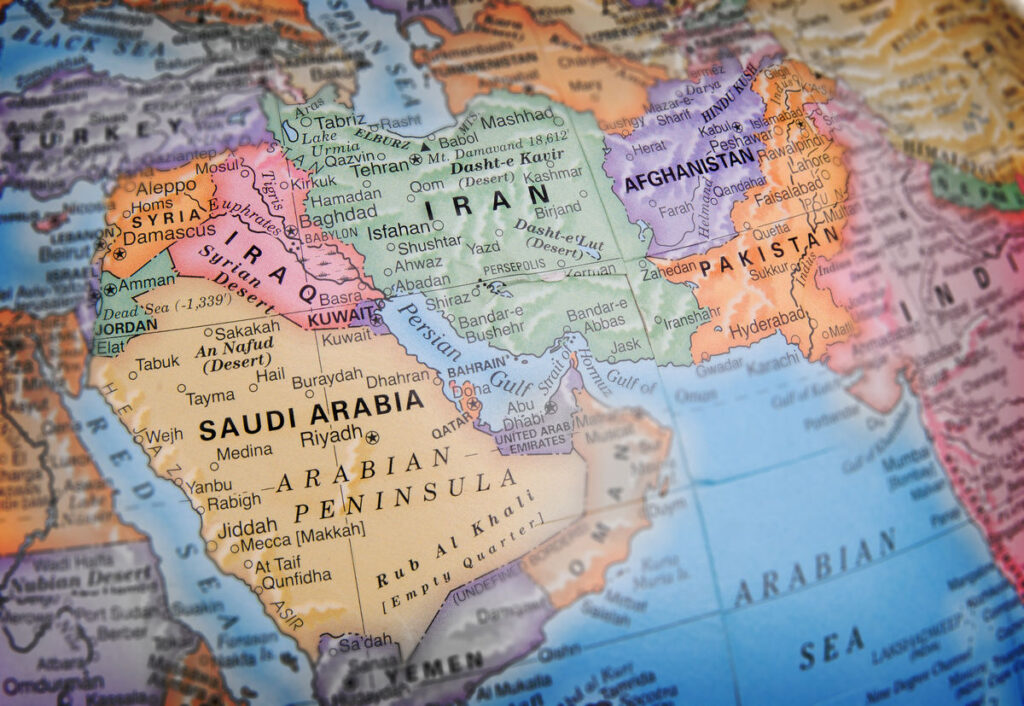
As tensions flare in the Middle East following the United States’ strikes on Iranian nuclear facilities, U.S. airlines are facing growing safety concerns in the vicinity. Major U.S. carriers, as well as other global airlines, are also continuing to avoid the region’s airspace amid ongoing hostilities between Israel and Iran.
According to Reuters, Safe Airspace, an aviation safety platform operated by OPSGROUP, issued a warning on Sunday that U.S. carriers may face heightened risk due to Iran’s threat of retaliation. “While there have been no specific threats made against civil aviation, Iran has previously warned it would retaliate by attacking US military interests in the Middle East—either directly or via proxies such as Hezbollah,” the organization stated.
The word of caution comes as missile exchanges between Israel and Iran continue to disrupt air travel. British Airways and Singapore Airlines both canceled flights to and from Dubai and Doha on Sunday, citing safety concerns. Singapore Airlines noted that the decision was made after a fresh security assessment and advised that further cancellations are possible in the days ahead, due to the “fluid” situation.
British Airways also announced that passengers booked to fly to Dubai or Doha between now and June 24 can reschedule their trips for any date through July 6 at no extra cost. The airline also noted that its teams are closely monitoring the evolving situation.
U.S. airlines are also adjusting their flight paths. Even prior to the U.S. strikes, United Airlines suspended flights to Dubai, and American Airlines paused its service to Qatar.
FlightRadar24, a real-time flight tracking website, showed commercial carriers rerouting flights around the conflict zone, steering clear of Iranian, Iraqi, Syrian and Israeli airspace. Instead, many are taking longer routes over the Caspian Sea or through Egypt and Saudi Arabia. However, these alterations mean higher fuel and crew costs, and extended flight times.
Since Israel began its military campaign against Iran nine days ago, numerous airlines have halted service to affected countries. While most regular routes remain suspended, a limited number of evacuation flights have been sent in from neighboring areas, while others have been working to repatriate stranded Israelis.
Missile and drone attacks across multiple conflict zones worldwide are posing serious risks to commercial aviation.
With airspace over both Russia and Ukraine still closed due to an ongoing war, the Middle East has taken on even greater importance in terms of providing an alternative corridor linking Europe and Asia.
Adding to the pressure, there are fears that the conflict could cause a spike in oil prices, pushing up the already high cost of jet fuel.
Evacuation and Repatriation Efforts
Earlier on Sunday, Israeli airlines El Al, Arkia, Israir and Air Haifa announced a pause on rescue flights that had been bringing citizens back to the country, with no set timeline for resumption.
El Al, Israel’s national airline, also confirmed it would continue suspending its regular flights through Friday. Meanwhile, Israir stopped selling tickets for any flights scheduled through July 7.
According to a spokesperson from Israel’s airports authority, Ben Gurion Airport near Tel Aviv was scheduled to temporarily reopen on Sunday for incoming rescue flights between 11:00 a.m. and 5:00 p.m. GMT. The smaller Haifa Airport in the north would also open during the same time window. The four carriers said they planned to run at least 10 flights during that period.
Tens of thousands of Israelis and international travelers who had booked flights to Israel now find themselves stranded overseas.
Meanwhile, close to 40,000 tourists who are currently in Israel are now seeking ways to leave. Many are crossing through Jordan into Amman and Aqaba, while others are departing via Egypt or taking boats to Cyprus.
For the latest travel news, updates and deals, subscribe to the daily TravelPulse newsletter.

